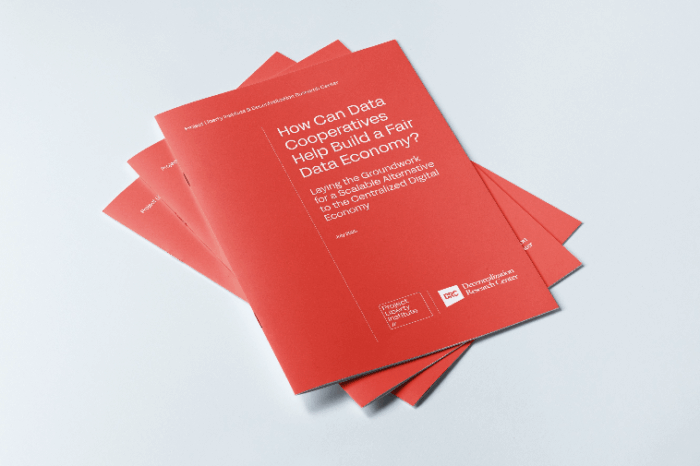
With the tech revolution spreading across all sectors around the world, data has become an increasingly valuable commodity with the power to shape our lives—prompting moves to use the cooperative business model to bring it under democratic control.
With social media companies gathering a wealth of personal data; gig economy platforms using data to extract wealth; datasets from farms, transport and health organizations acquiring greater monetary value; and businesses in sectors like retail, leisure and finance continuing to harvest information on customers, issues of control, accountability and transparency become more urgent by the minute.
Now, a report from Project Liberty called How Can Data Cooperatives Help Build a Fair Data Economy? is the latest attempt to make the case for the mutual model.
Written by Jeb Bell and Sarah Nicole of Project Liberty, and Connor Spelliscy and Samuel Vance-Law of the Decentralization Research Centre, the report has insights from co-op experts including NCBA CLUSA president and CEO Doug O’Brien, Media Economies Design Lab Director Nathan Schneider and Jessica Gamache, head of research at the Filene Research Institute.
The report argues that the co-op model can help to empower people in a world dominated by tech giants, because it fits with notions of collective consent.
“Cooperatives are inherently designed around group interests and shared outcomes,” the report says, “which makes them structurally well-suited to managing data whose value and ethical implications often extend beyond individuals.
“Unlike corporations that treat data as proprietary and individual privacy as a liability, co-ops can treat collective data rights as a core mandate, much more consistent with how data actually functions.
“Importantly, cooperatives offer a form of collective leverage that is largely absent in today’s data economy. Individuals have little bargaining power when faced with the opaque and asymmetrical practices of tech giants, exemplified by practices in the gig economy that blur the boundaries between contractors, freelancers, and employees, often leveraging this vagueness to minimize obligations and shift risk onto workers.”
Instead, co-ops enable communities to pool resources, negotiate collectively and shape the terms of engagement, the report says—which is “especially important for marginalized groups.
It gives the example of Enyorata Loviluku in Tanzania, where women, historically excluded from access to bank loans, have created a co-op that can receive credit and leveraging collective financial data and risk.
Co-ops can work on this by scaling out, rather than up, the report adds. “Co-ops grow through networks, not monopolies. This allows for decentralized, context-driven, and democratic governance that reflects the nature of data itself.”
Models such as large co-op federations, or associations like America’s Electric Cooperatives show the potential for scaling out data in this manner, the report says.
This sort of cooperation can produce the quality data needed to improve AI, the report adds. “The shared ownership provided by the co-op model ensures those who generate it share its benefits. Co-ops incentivize quality, trustworthy data, making them uniquely aligned with both ethical AI development and fairer outcomes for contributors.”
Examples of cooperation in data cited in the report include the Credit Union Data Exchange (CUDX), a co-op that allows credit unions to contribute their data, which is then anonymized, pooled and securely shared among participating institutions.
“This collaborative model empowers credit unions to access broader insights, benchmark performance, and provide data-driven decision-making while maintaining control over their individual datasets,” the report adds.


